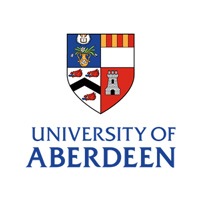fees waived
Electrical and Electronic Engineering with Renewable Energy, MEng (Hons)
University of Aberdeen, United Kingdom
Subject ranking
UK / CUG 2024 11th
UK / Guardian 2025 12th
UK / Times 2025 15th
Costs
food & rentS$17K / year
Entry requirements
Scholarships
Limited quantity
Information
Code
Intakes
Website (External)
Programmes
Information
Duration
2030
Course summary
Electrical and Electronic Engineering (EEE) is fundamental to modern society, encompassing everything from advanced computer systems and digital circuits to photonics and cutting-edge technologies like automated cars, robotics, medical equipment, and the next generation of mobile data transmission.This 5-year MEng degree puts electrical and electronic engineering into the context of Renewable Energy Engineering and is ideally suited to somebody who wishes to focus their electrical and electronic skills on this particular growing industry.The University of Aberdeen has a proven track record of preparing graduates for the Energy sector. Consequently, we have recruited specialist staff in our engineering school and attracted highly-regarded industrial experts from the energy industry who contribute to the relevant taught modules. After laying a strong foundation of basic and advanced electrical and electronic engineering concepts in the first four years (similar structure to the straight MEng Electrical and Electronic Engineering), the programme offers students to enhance their knowledge specifically in aspects related to renewable energy.The programme prepares the students to take up exciting careers designing long-distance high-voltage transmission lines, biofuel plants, geothermal and tidal wave extractors or large solar farms.One of the main features of the programme is its focus on all renewable energy sources; solar & geothermal, wind, marine, hydro power and biomass fuel. Many renewable related degree programmes focus solely on one area of the sector but we intentionally provide an overview of them all so you have the best opportunity of gaining a successful career upon graduation.The first two years cover general Engineering, with elements of Chemical, Mechanical, Petroleum and Electrical/Electronics, as well as Civil. In the later years you specialise, following your chosen discipline in greater depth. You do not need to finalise your choice of specialisation until you begin third year.It is possible to move between MEng and BEng and this can be accomplished at any point until the second half session of fourth year. Successful BEng candidates will be offered the chance to change to the MEng and there is no quota, meaning that if grade requirements are met that transfer is guaranteed. View all modules on the programme page to find out more about what you will be studying and when. University of Aberdeen modules are designed to give you breadth and depth to your degree. The range of modules you study will allow you to become proficient in all subjects which are directly relevant to your degree giving you greater career options. The use of various forms of assessment and learning environments facilitates the development of generic transferable skills enhancing student employability.Students are assessed by any combination of three assessment methods: coursework such as essays and reports completed throughout the course; practical assessments of the skills and competencies they learn on the course; and written examinations at the end of each course. The exact mix of these methods differs between subject areas, years of study and individual courses.Honours projects are typically assessed on the basis of a written dissertation.Modules
Assessment method
Professional bodies
Professionally accredited courses provide industry-wide recognition of the quality of your qualification.
View all modules on the programme page to find out more about what you will be studying and when. University of Aberdeen modules are designed to give you breadth and depth to your degree. The range of modules you study will allow you to become proficient in all subjects which are directly relevant to your degree giving you greater career options.
A local representative of University of Aberdeen in Singapore is available online to assist you with enquiries about this course.

